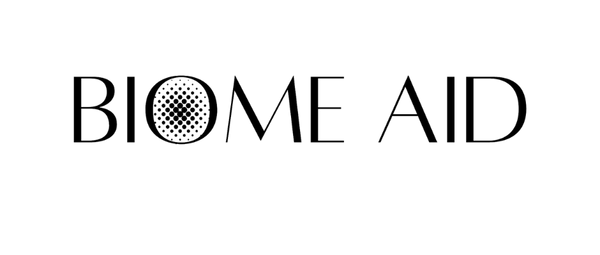Find your answers here
What is hypochlorous acid and why should I care?
Hypochlorous acid is the same molecule your white blood cells produce to heal and protect your body. It's created by electrolyzing salt and water, but it's incredibly effective at calming inflammation and supporting your skin barrier - especially during hormonal changes.
Why does it smell like chlorine?
That faint pool smell actually means it's working! When hypochlorous acid kills bacteria and calms inflammation, it creates harmless byproducts called chloramines that have a slight chlorine scent. The smell fades quickly and means your skin is getting the benefits.
Is it safe to use everyday?
Absolutely. Your immune system makes this same molecule 24/7. It's gentle enough for the most sensitive skin, including around your eyes, and won't disrupt your skin barrier like harsh actives can.
How is this different from expensive serums and treatments?
Simple: it actually works without the BS. While $200 serums promise miracles with complicated ingredient lists, hypochlorous acid does one thing really well - it calms angry skin using the same process your body already relies on.
Will this help with dry, itchy skin issues?
Yes! Biome Aid helps calm and hydrate skin by supporting the natural barrier - without oils, alcohol, or fragrance. It’s great for dry, sensitive, or easily irritated skin (and for anyone who overdoes it on actives or exfoliants). Moms love it for calming redness or post-treatment sensitivity, and teens love it for keeping breakouts in check.
Can I use it with my other skincare products?
Definitely. It plays well with everything because it's not competing with other actives - it's just supporting your skin's natural functions. Use it first, then apply your usual routine.
How quickly will I see results?
Most people notice calmer, less irritated skin within a few days. For ongoing issues like rosacea or hormonal sensitivity, you'll typically see improvement within 1-2 weeks of consistent use.
Is Biome Aid safe for teen or pre-teen skin?
Yes. Biome Aid is made with hypochlorous acid - a compound your body already produces to help calm redness, fight bacteria, and support healing. It’s gentle enough for daily use, even on sensitive or breakout-prone teen skin. There are no harsh acids, alcohols, or fragrances, so it won’t sting or dry their skin out.
Can my teen use Biome Aid if they play sports?
Absolutely. Sweat, helmets, and sports gear can trap bacteria and irritate the skin, leading to breakouts on the face, back, and shoulders. A quick mist after practice or showering helps keep the skin clean and calm without over-stripping it - perfect for hockey bags, soccer players, and teens always on the go.
Can parents and teens share the same bottle?
Yes! Biome Aid was designed for everyday skin health, not just one age group. Moms love it for calming redness or post-treatment sensitivity, and teens love it for keeping breakouts in check.
But fair warning - once everyone starts using it, you’ll need one bottle for every bathroom (and probably one for every sports bag, too).
Why don't dermatologists talk about this more?
Great question! Hypochlorous acid has been used in wound care for years, but it's only recently become stable enough for at-home skincare. Many dermatologists are just starting to catch up with this "new" option.
Couldn't find your answer?
We're here to help. If you couldn't find the information you were looking for, please reach out to us directly. Our team is eager to assist you.
